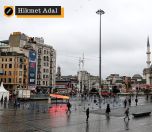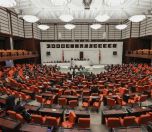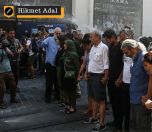* Photo: Amnesty International
Click to read the article in Turkish
Ahead of the annual review meeting of the Financial Action Task Force (FATF) on June 21-25, Amnesty International has released a briefing where it has shared its views on the Law No. 7262 on the Prevention of the Financing of the Proliferation of Weapons of Mass Destruction.
"Measures to prevent terrorism financing abusively target civil society and set dangerous international precedent," the briefing has stressed.
"Turkey's shameless exploitation of the findings of an international terrorism financing and money laundering watchdog to rush through a draconian new law targeting civil society organisations is a warning to the world that must be challenged," Amnesty has said in its statement.
The briefing "Weaponizing counter-terrorism: Turkey's exploitation of terrorism financing assessment to target civil society" has shed light on "how a new law adopted under the guise of combatting terrorism financing threatens to undermine the legitimate work of civil society organizations."
According to the briefing, "The Law No. 7262 on the Prevention of the Financing of the Proliferation of Weapons of Mass Destruction introduces new measures that violate the rights to freedom of association and expression, as well as internationally recognized fair trial guarantees."
'Disguised attempt to ratchet up the pressure'
Commenting on the law, Amnesty International's Europe Director Nils Muižnieks has also shared the following views:
"This outlandish law bulldozed through at breakneck speed on the pretext of combating terrorism is a thinly disguised attempt to ratchet up the pressure on a sector already reeling from more than five years of a relentless crackdown. The new law joins Turkey's arsenal of counter-terrorism laws, many of which are routinely used to target human rights defenders and civil society organisations, including Amnesty International.
"It threatens to escalate the pressure on civil society activists who already face prosecution and conviction on trumped up terrorism charges."
Recommendation for 'proportionate risk-mitigation'
During its upcoming Plenary Meeting, the FATF will review Turkey's compliance with the task force's 2019 assessment report which found Turkey only in 'partial compliance' with FATF's recommendation on terrorism financing and potential risks associated with the not-for profit sector.
FATF recommended that Turkey "implement a focused risk-based approach and proportionate risk-mitigation measures to Non-Profit Organizations (NPOs) identified as at risk of terrorism financing abuse".
According to Amnesty International, "in response, Turkish authorities rushed the new law through parliament which came into force on 31 December 2020, without any consultation with civil society."
"The law goes far beyond what is required by the FATF, and its overly broad and vague provisions undermine the principle of legality in a way that threatens to further erode the exercise of the rights to freedom of association and expression, and a range of other human rights."
Cases of Taner Kılıç and Osman Kavala
"The law comes in the context of the ongoing onslaught by Turkish authorities against independent civil society actors," Amnesty Statement briefing has read, briefly sharing the following information:
- The ongoing prosecution of imprisoned prominent civil society figure, Osman Kavala, and the conviction of Amnesty International Turkey's honorary chair, Taner Kılıç and three other human rights defenders in the Büyükada prosecution, are emblematic cases of Turkish authorities' determination to clamp down on civil society.
- The cases expose how counterterrorism measures in Turkey have been weaponized against political opponents, journalists, human rights defenders, and civil society organizations.
- Fear of being labelled a "terrorist" or of their legitimate work being characterized as a "security threat" has had a chilling effect, shrinking the space for free expression and association.
- With a state of emergency in place from 2016-2018, more than 1,300 associations and foundations and over 180 media outlets were permanently closed down by executive decrees for unspecified links to "terrorist" organizations.
- "Using FATF requirements as a fig leaf to target critics and silence dissent sets a dangerous precedent that will be keenly eyed by many other governments around the world seeking to silence their own critics," said Nils Muižnieks.
- "The FATF meeting next week must do more than acknowledge these unintended consequences, and take concrete action to reverse them. Failure to do so would be an abdication of responsibility that could spell disaster for civil society in Turkey and beyond."
Notes on the FATF
The FATF is an intergovernmental organization that is mandated to combat money laundering, terrorism financing, and countering the financing of the proliferation of weapons of mass destruction.
In February 2021, the FATF launched a new project to study and mitigate the unintended consequences resulting from states' incorrect implementation of FATF recommendations and standards.
Focus areas include the suppression of non-profit organizations through the failure of states to implement the FATF's risk-based approach and threats to human rights stemming from the misuse of its standards.
According to the Global NPO Coalition on FATF -- which monitors countries that have imposed undue restrictions on freedom of association on the basis of terrorism financing concerns -- Albania, Bangladesh, Cambodia, Pakistan, Sri Lanka and Venezuela have also used FATF standards to target civil society. (PT/SD)




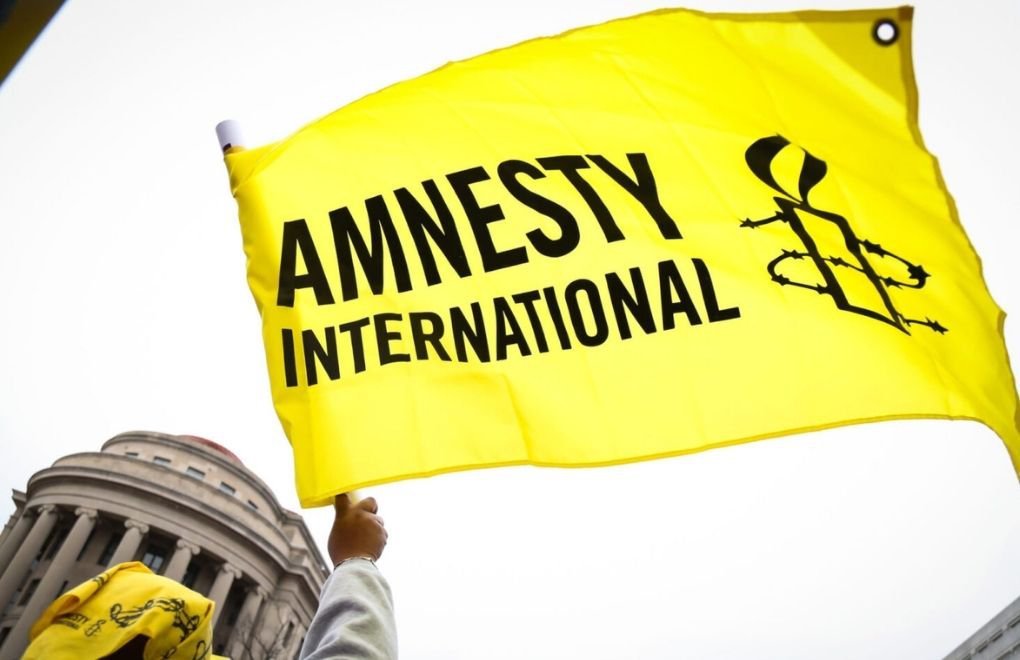
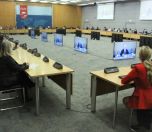

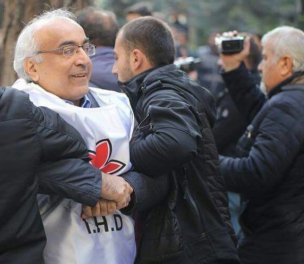
-132.jpg)
